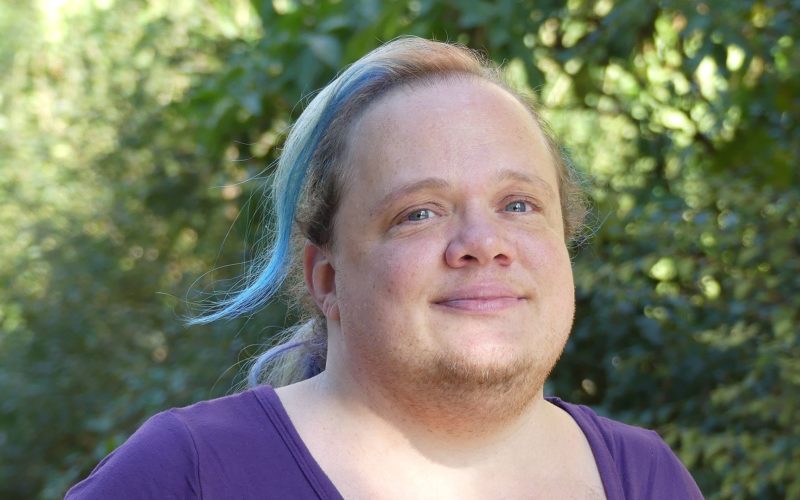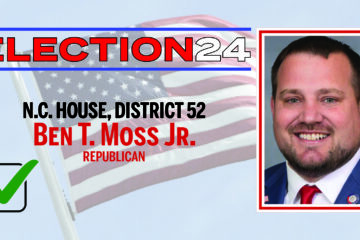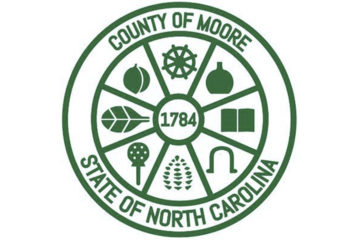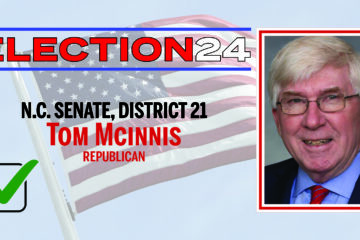Alex Gino on September 15, 2016 in front of the Haus der Berliner Festspiele in Berlin during their participation at the section International Children´s and Young Adult Literature of the 16th International Literature Festival Berlin. (Christoph Rieger | CC BY-SA 4.0)
Board members Holmes and Levy both have objections to “George.”
RALEIGH — The controversial book “George” remains on the library shelves in two of the district’s schools while a complaint filed over the book heads to the Moore County school board.
The book, written by Alex Gino, has been considered controversial for its transgender storyline of a fourth-grade boy who believes he is a girl named Melissa. The publisher’s website claims the book is recommended for children ages eight to 12.
The book, which is not required reading, can currently be accessed by any student in both McDeeds Creek Elementary and Union Pines High School.
Pursuant to Moore County Public Schools policy, the complaint was taken up by the Media and Technology Advisory Committees at each school. The committees at both schools recommended “George” should stay in the libraries. The next step in the process takes it to the school board level and the board plans to discuss the book during its February work session.
The complaint to remove the book was filed in mid-December of 2021 by James Pedersen.
“Introducing children to porn and clearing their browser, genital mutilation with scissors, gender dysphoria does not address the ‘diversity of needs, interests and viewpoints of students’,” the complaint states.
“As a taxpayer … I don’t want my money going towards any of those things in a government school,” Pedersen told North State Journal.
The complaint asks, “how is this appropriate for elementary students who haven’t even had sex ed yet?” The question follows an excerpt from the book where the lead character fantasizes about removing his genitals with scissors when thinking about a possible future sex change.
A portion of the complaint says it’s “not the government’s business to introduce to children transgenderism, sex changes, androgen blockers, cross dressing, internet porn, or LGBTQ lifestyles.”
According to the American Library Association’s 2019 list tracking the most challenged books, “George” ranks number one. Of the top 100 most challenged books for the ten years from 2010 to 2019, “George” ranked fifth even though it was only first published in 2015.
Moore school board member Philip Holmes has expressed that he doesn’t believe the book “has any business” being on elementary school library shelves.
Pedersen told North State Journal that it took months to get anywhere with the district about his complaint about the book. He said he finally received information about how to lodge a complaint from Holmes and Rep. Jamie Boles (R-Moore).
In response to an email from Interim Superintendent Tim Locklair which described the process involving Pedersen’s complaint, Holmes asked Locklair to “accept this as a formal request to reevaluate the book “George” for inappropriate content. I am very concerned about the decision your staff or the committee’s decision per your email.”
“Please know that I am prepared to bring light of this issue publicly until this book is removed from our schools,” wrote Holmes. “Please advise what avenues I need to take as a sitting board member to have this book brought back up for reconsideration for removal.”
Some have called “George” controversial, while others have called it pornographic or obscene. Moore County school board member Robert Levy told the North State Journal the “notion that the book George is ‘obscene’ is not accurate” and it “misses the reason why it should be withdrawn from circulation at our school libraries.”
“The book deals with the unsettled and controversial notion of ‘gender fluidity.’ This is the idea that a person mentally determines gender and that this idea should replace or supplant our notion that gender is a function of chromosome structure and biology,” Levy wrote in an email to NSJ. “Whether such a book should be available from an elementary school library or any school library is the question we must answer.”
Levy said the schools first need to determine whether or not the literature is appropriate and if it “contributes to our mission of improving educational literacy.”
“Our libraries are special purpose libraries,” said Levy. “Each title is chosen (or should be chosen) for its educational value to children of a certain age.”
Levy said the topics of gender dysphasia and gender fluidity are “not age appropriate in an elementary school setting.” He added that at the middle and high school level, “gender dysphoria and gender fluidity are best addressed by medical and psychological professionals in conjunction with parents.”
Levy told NSJ he initially believed the book, written for a middle school reading ability, could be properly placed in a middle school library. “Its anti-bullying subplot seems worthwhile. But, on closer scrutiny, we still have the problem that the book deals with matters of gender dysphoria, does contain a passage discussing self-mutilation and delves into a dangerous reason why adolescents commit self-harm, I.e., displeasure with one’s own body,” he said.
“It also treats, without explanation, the unsettled notion of gender fluidity as fact. As such the book is misleading. Further, we are currently investigating a very troubling matter in one of our middle school sexual education classes and we may need to reevaluate our approach to adolescent sex education generally.”
Levy stated emphatically “we do not ban books.”
“All books, even George, should be available at public libraries, online and at bookstores,” said Levy. “But this particular book is not in line with our core mission, which is to teach children to read and, if they do desire, choose literature which may not be available at school but which they and their parents jointly believe will further their understanding of our complex world.”
“George is poorly written, confusing and teaches unsettled sexual theory as fact,” wrote Levy. “It’s passage on self-mutilation is not in keeping with community standards for children exposed to such literature. Hence, it is probably best to withdraw the book from circulation at school libraries, instead deferring circulation to public libraries and book vendors.”




